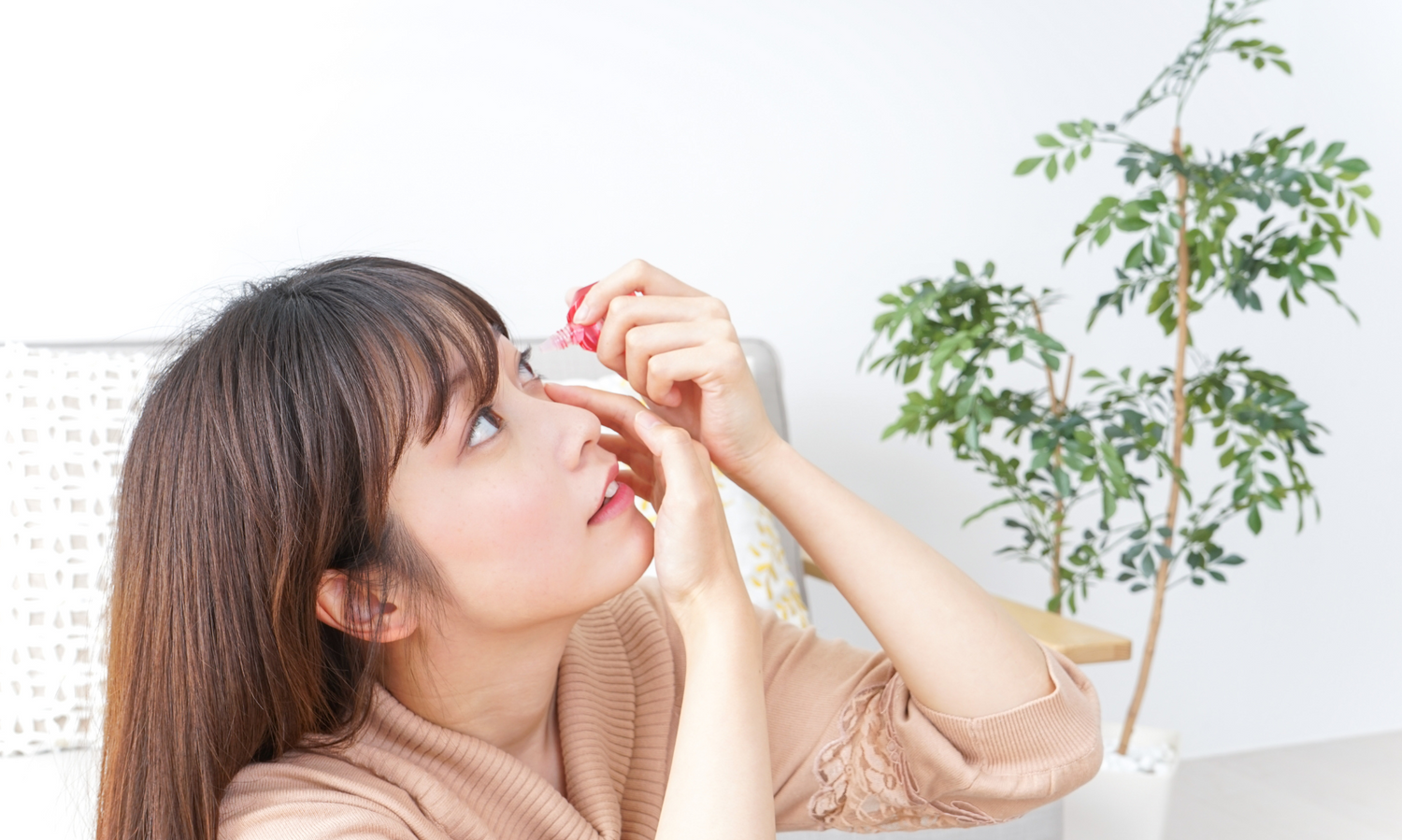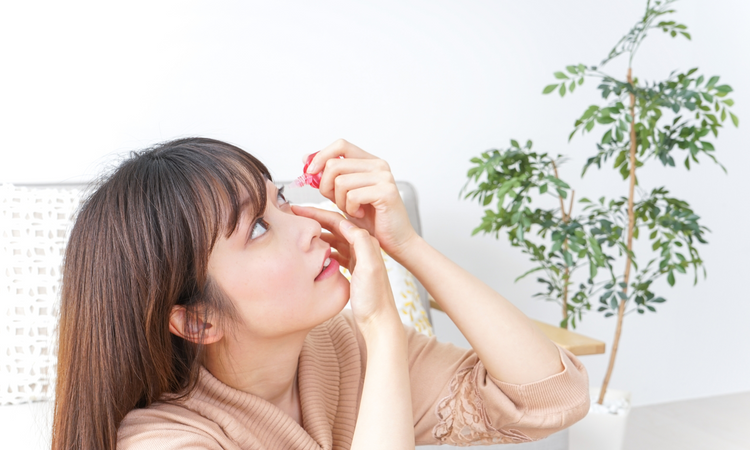Your Symptoms: Which Eye Drops to Use?
With such a large variety of eye drop types on the market, it’s hard to know what the best option is to make sure your eyes stay properly lubricated and healthy, and that conditions are appropriately treated.
Keep in mind that different types of drops treat different problems, and the wrong one may make your symptoms worse. Your optometrist is the best source for information, diagnosis and treatment plans for specific eye conditions, so make an appointment with your eye doctor if you are experiencing any discomfort or symptoms. To help keep you informed, we’ve compiled this guide to explain some of the more common types of eye drops for various conditions.
Dry eyes
Artificial tears are used to remedy dry eyes. The solution keeps the surface of your eyes moist. Many people use artificial tears when they can’t create natural tears due to a variety of medical reasons, such as post-laser eye surgery, Bell’s Palsy, or any time when the facial nerves have been damaged. Ingredients vary by brand, and some offer preservative-free options.
Contact lenses
Drops made specifically for contact lenses are a must if you wear them. Avoiding drops with preservatives is a general guideline, but because these formulas are more specialized, it is recommended that your eye doctor advise on the type that will fit your needs instead of buying off the shelf.
Redness
Redness-removing or decongestant drops help reduce the redness in eyes. The main ingredient in redness-reducing drops is a vasoconstrictor, which works to shrinks the blood vessels on the surface of your eye. Caution when using these drops is recommended, since using them over time can cause irritation or even increase the redness. Dependency issues have also been documented, which may even make your eyes red when you try to stop using drops.
Allergies
Relief from itchy, scratchy, watery eyes caused by common allergens like pet dander, grasses, pollen, or mould, can be achieved by using allergy relief drops. These drops are specially formulated with antihistamines that block histamine-induced reactions. More advanced formulas of drops, known as mast-cell stabilizers, work to prevent your body from making any histamines when exposed to an allergen. Allergy drops prescribed by your eye doctor can provide more thorough and prompt relief from your allergic symptoms.
Special conditions
Pink eye and other common forms of eye infection often require treatment with eye drops. Consultation with an eye doctor is recommended to determine the best treatment.
In most cases, your eyes are affected by how much sleep you get and how you much water you drink. Remember that if at any time you notice a negative reaction when using drops, stop using them immediately. If you have further questions about eye drops, make an appointment with your local Visique clinic today.
- Choosing a selection results in a full page refresh.

